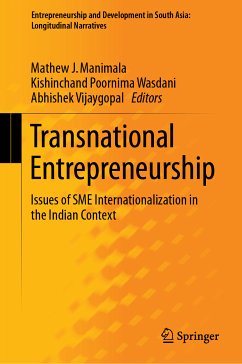This edited volume develops an understanding of the strategies, processes, issues and concerns involved when small and medium-sized enterprises (SMEs) go international with their local products/services and vice versa. It is a compendium of eighteen selected chapters on the subject, supported by an introductory chapter. The contributions are organized in four parts based on the sub-themes they deal with. The first part, containing the introductory chapter, provides different perspectives on transnational entrepreneurship, returnee entrepreneurship and their linkages with the internationalization process. The subsequent parts have chapters dealing with three sub-themes of the subject - the internal factors (individual and firm-level resources), the external factors (entrepreneurial ecosystem), and the process of organizational transformation and change, respectively, in the context of SME internationalization.
Special issues and challenges being faced by SME entrepreneurs in emergingeconomies have been highlighted in this book, discussing key contemporary issues with regard to internationalization in the three dimensions outlined above. Further, the book explains how an entrepreneur can engineer the transformation of his/her organization into an international SME.
This book is a very useful resource for entrepreneurs and policy-makers in general, and for academics and researchers in particular, as it provides an overview of the contemporary research in the critical areas of SME internationalization and transnational entrepreneurship by highlighting the linkages between them with special reference to emerging economies.
Dieser Download kann aus rechtlichen Gründen nur mit Rechnungsadresse in A, B, BG, CY, CZ, D, DK, EW, E, FIN, F, GR, HR, H, IRL, I, LT, L, LR, M, NL, PL, P, R, S, SLO, SK ausgeliefert werden.









